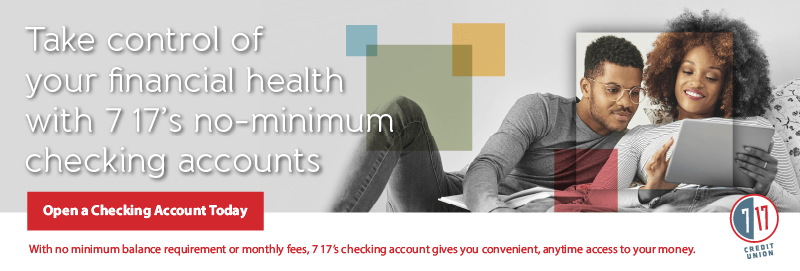- 7 17 Staff
Pros and Cons of Money Market vs. Savings Accounts

Money market versus savings accounts: What’s the difference? Which should you choose? At first glance, they may seem similar, but there are key differences that you should be aware of so you can make an informed decision based on your goals.
Money Market vs. Savings Accounts
Both types of accounts have their own pros and cons, so your decision comes down to deciding which is going to be best for you. Let’s take a closer look at money market versus savings accounts so you can come to an informed decision.
Money Market Accounts
A money market account acts like a savings account. It’s interest-bearing, but better for short-term savings goals rather than long-term savings goals. Some money market accounts offer checking account features, such as check-writing and debit card privileges.
Interest rates for money market accounts are often higher than savings accounts, but to keep your account active and continue to earn interest, you’ll have to maintain a certain balance. Otherwise, you could receive fees or account restrictions.
Pros
The pros of this type of account include:
- Higher interest rates.
- Ease of access to your account
Cons
The cons of this type of account are:
- It shouldn’t be used for everyday spending like a typical checking account.
- The amount of withdrawals that can be made from the account is limited.
- You’ll need to make a sizable deposit to open the account.
- You’ll need to maintain a required minimum balance.
- The account isn’t ideal for long-term savings goals.
Savings Accounts
A savings account is a strategic way to save for your future and can be used as an emergency fund. You can have easy access to the money in your savings account and can even transfer money between your checking and savings accounts with ease through your mobile banking app.
It may seem like you don’t have access to your money because it’s in a different account, but with a few simple steps you can transfer money as needed, or visit the ATM to take cash out of your account.
Pros
The pros of this type of account include:
- Having a low minimum balance to maintain the savings account
- Having a low opening deposit, sometimes as low as $5 depending on the credit union or bank
- It’s a low-risk investment that you won’t lose money from
- You can monitor your savings goals
Cons
The cons of this type of account are:
- You don’t have check writing or debit card privileges with this type of account (but it can be connected to your checking account, which does have check writing and debit card access)
- It doesn’t earn as much interest as a money market account
- Some accounts may not be interest-bearing
Which Account Should You Choose?
Money market and savings accounts are both beneficial tools for building your savings. There is no one right answer to which account you should choose, so it’s important to make your decision with your goals in mind.
If you need quick access to the money in your account, then a savings account is a wise choice because you can easily transfer money to and from your checking account. With a money market account, you have to maintain a strict minimum balance, otherwise you could face fees and account restrictions.
This is crucial to consider if you’re planning on using your account for an emergency fund. In the event of an emergency or unexpected bills, you’ll need quick access to your account and will not want to worry about fees or restrictions in your account access.
If earning interest is important to you, a money market account may be a wise choice because it tends to earn more interest compared to savings accounts.
Kick Your Savings into Gear
Ready to kick your savings into gear and explore money market versus savings account options? Check out 7 17 Credit Union’s savings account options and open an account to get started toward your savings goals today.
